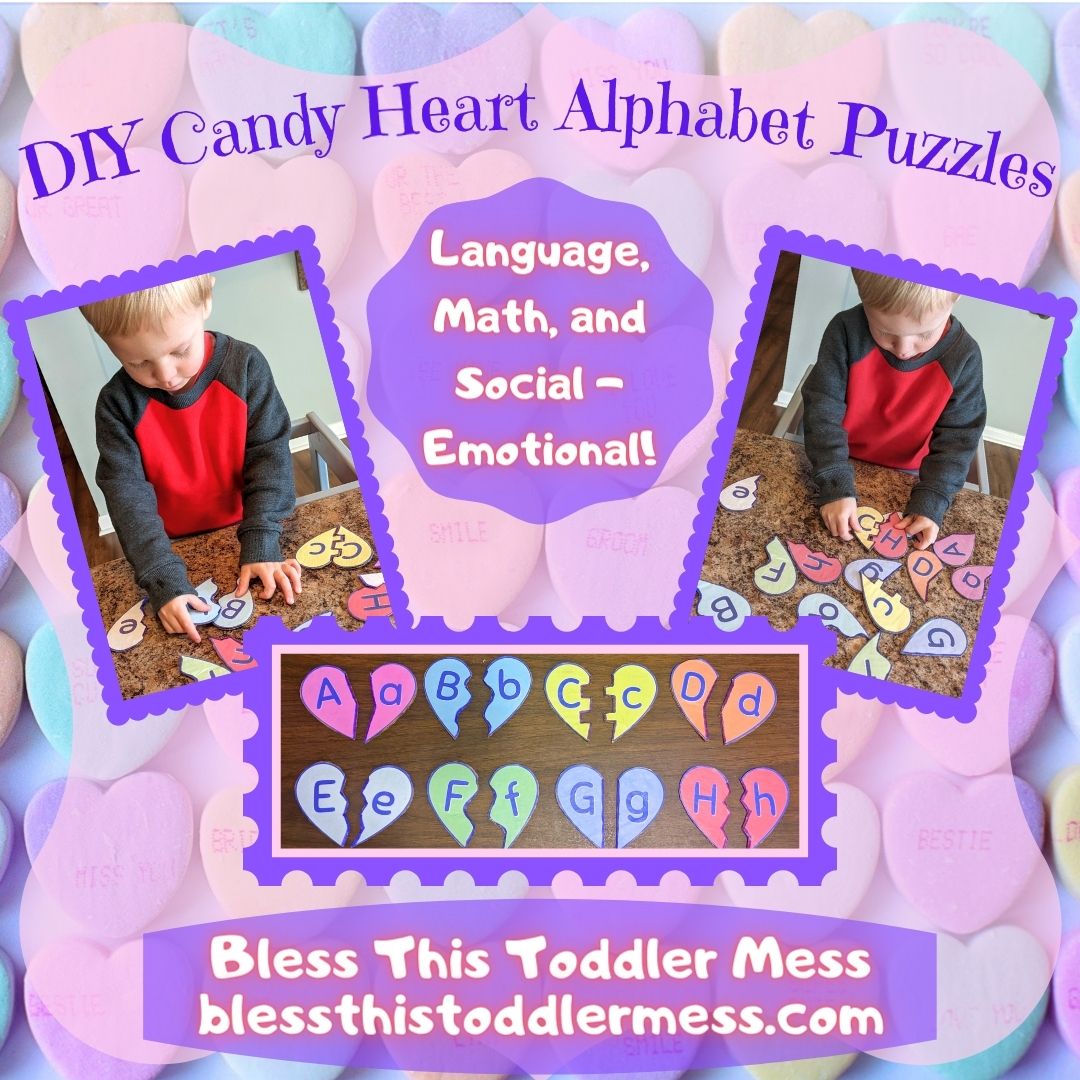
Puzzles are amazing learning tools – but they can be so expensive!

So I thought, what do I have around the house that I can use to just MAKE my own?
Look familiar? 😀

I don’t know about you, but we have PLENTY of cardboard boxes around! Like actual piles and towers of boxes. Why not make use of them?
Wait…you’re going to do WHAT with my bed????

Sorry kitties…
Guess you’ll just have to find something else to sleep in…like maybe the cat beds I bought for you?!?!?!?!

I digress…
To make your own alphabet puzzles to practice matching lower and uppercase, you can print out these cute candy heart patterns here:


I have a bunch of boxes that had one side white, so I cut out a bunch of squares to trace the hearts on. You can use any cardboard – or if you really like the white you can splurge for some dollar tree foam poster board.
Also pictured is my dollar tree plastic place mat which I highly recommend for protecting your table/counters if you cut your cardboard with a box cutter.

It also makes an easily washable workspace for my gluing and painting schenanigans.
Here are my hearts front and back:

Now simply glue the heart patterns onto the cardboard! Use only the smallest amount of glue possible so the paper doesn’t wrinkle – I usually trace a thin outline as close to the edges of the paper as possible, do a thin squiggle in the middle, then slide it around on the cardboard a bit before lining it up to spread the glue as thin and over as much surface area as possible.

You can stop there, or to really challenge your kiddos, you can make them true puzzles by cutting them down the middle (wait until the glue is dry 😉 ) in various patterns so each letter has it’s perfect fit!


This puzzle is great for language (letter matching) and math (color and pattern matching).

And because each match must be the same in color and pattern, this helps their little learning brains make the connection that the upper and lowercase letters, though they look a little different, must be connected too!
The more they can see the upper and lowercase together, the more they begin to associate them together in their minds.

Puzzles are also great for social/emotional development, because there are so many opportunities to practice overcoming frustration! You can start with just a few matches so they aren’t overwhelmed with pieces that don’t fit. As they learn it’s ok to “nope – try again!” without becoming frustrated, you can add in more and more opportunities to practice!

That proud smile of achievement is absolutely the BEST! 😀

Happy puzzling!

Like it? Please share or follow to see more posts like it!

